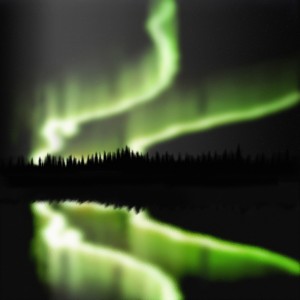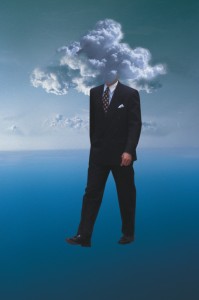Circus of Dreams (Part 1)
By Asher Crispe: November 15, 2012: Category Decoding the Tradition, Inspirations
To Light Up the Night
 Over the years I have met people who on queue get tired and turn in for the night soon after the sun goes down. Guided by normal circadian rhythms, those amongst us who associate night time with sleep seem to stick to more of a schedule than those of us who, fascinated or terrified by the night, suffer from insomnia. I for one can never seem to sleep at night. Perhaps it is because of the mystery of the night or simply that I don’t want to let go of my conscious mind or that I feel like too much remains unfinished from the tasks of the day.
Over the years I have met people who on queue get tired and turn in for the night soon after the sun goes down. Guided by normal circadian rhythms, those amongst us who associate night time with sleep seem to stick to more of a schedule than those of us who, fascinated or terrified by the night, suffer from insomnia. I for one can never seem to sleep at night. Perhaps it is because of the mystery of the night or simply that I don’t want to let go of my conscious mind or that I feel like too much remains unfinished from the tasks of the day.
In Kabbalah, the most basic association of night with sleep, and sleep with dreams, still carries significance for night owls such as myself. Night, and the darkness that fills it, represents the unconscious or superconscious mind. Day, with all of its illumination, in turn serves as the prime metaphor for consciousness itself. Thus, the full night/day cycle informs us about the nature of human consciousness. In the Genesis narrative and in Jewish tradition, the night always precedes the day. Taken abstractly, this implies that I first encounter any experience in a kind of dream state within the unconscious before I awaken to clarify what it really is and thereby direct that experience down into my conscious mind.
Much of kabbalistic reflection is an exercise in map making. Looking at natural time cycles is no exception. Just as we have overlaid symbolic equivalencies of consciousness over the basic frame of night and day, so too we can readjust this model to fit with a large time cycle such as the year. In Lurianic Kabbalah this would be called hitlabshut zemanim or the enclothement of a higher temporal order within a lower one or a lower one in a higher one. A prime example of this would be to see the whole year in terms of a day (a case of a more expansive time cycle figuratively squeezed into a more restricted one). In the Jewish calendar, this is precisely what occurs on Rosh Hashanah which acts as the ‘head’ of the year–the mentality that straddles the entire year within the microcosm of a day. Another mapping that works in the opposite direction would be to see an entire year in terms of a day (a case of projecting a lower magnitude of time onto a higher one or a bottom up verses a top down temporal shift). In this case, the parts of that day become the seasons of the year. Reconsidering ‘circadian’ rhythms whereby we can break the word circadian down into the circle (Latin: circa) and day (Latin: diem), it follows for the year as well. It too forms a life cycle. Its correspondence to the day would be as follows:
- Spring = Morning/Sunrise
- Summer = Midday
- Fall = Evening/Sunset
- Winter = Night
Given this system of correspondence, the winter months have the longest period of night proportionate to daylight. The darkest of all of the months on the Hebrew calendar is the month of Kislev (from the perspective of the western hemisphere and the land of Israel as all geographic orientations in the Torah as Israel centric). Having long winter nights to sleep through would appear to bring comfort to some while for others it means becomes more and more aware of the dark. Regardless of one’s sleeping habits, Kislev is described as the essence of the winter and the darkest part of the night (within the year as a night/day cycle).
In Sefer Yetzeriah each Hebrew month has a related ‘sense’ or type of ‘intelligence’ called a chush. Besides the familiar five senses, there are a number of extrasensory senses (chushim) which we experience psychologically all the time. These can include a sense of direction, a sense of humor, and a sense of music to name a few. Kislev relates to the chush hasheinah or the ‘sense of sleep.’
Does this mean that some people just have a talent for sleeping? Are we speaking of those who can dose off in the blink of an eye just about anywhere? Lacking a sensitivity to sleep may mean that sleep is difficult for me, that I cannot easily allow myself to ‘fall’ asleep. I can’t get comfortable. My mind is racing. I am have anxiety coursing through my veins. My world of worry won’t shut down. With these considerations in mind, Chassidic masters explain that the inner motivating experience that affects our sense of sleep actually stems from having trust issues. As a power of the soul, bitachon, a sense of ‘security’ or ‘trust’ underscores our sense of sleep. If I feel safe from the world and the things that go bump in the night, then I can let myself go and drift into a peaceful slumber. But if I feel exposed and alone on the battlefield of life, no matter how tired I am, I won’t sleep. I may find myself living half way between waking and sleep, moving about like a zombie.
While all of this is included within the sense of sleep, in Jewish esotericism sleep becomes emblematic of an existential condition. The virtual reality nature of Creation means that we are never truly awake except for those times when we realize that this entire world is just a construct or a matrix (not entirely unlike the Matrix films). As the nursery rhyme goes “row, row, row your boat gently down the stream…merrily, merrily, merrily, life is but a dream,” so too our Created reality can be thought of as a vast dreamscape if we think of it as an end in and of itself. The autonomous world is not autonomous at all. In other words, when we only see the world and lose sight of what is beyond the world then we are said to be in a dream state. We are asleep as far as our true relationship to the Creator and are fooled by the virtu-sphere of our immediate surroundings.
 This darkness is a redoubled darkness. I am in the dark but I am also in the dark about being in the dark. I am unaware that I am dreaming. By contrast, as the verse proclaims in Psalms 126:1 “…when God brought back those that returned to Zion, we were like dreamers.” In midrashic sources, night, sleep, pregnancy (literally in the matrix of the mother), dreams are all symptoms of exile. Everything is displaced and confused in the night. The dream is a hallucination that is mostly a byproduct of my mind and imagination. In the dead of winter nothing grows. Reality hibernates.
This darkness is a redoubled darkness. I am in the dark but I am also in the dark about being in the dark. I am unaware that I am dreaming. By contrast, as the verse proclaims in Psalms 126:1 “…when God brought back those that returned to Zion, we were like dreamers.” In midrashic sources, night, sleep, pregnancy (literally in the matrix of the mother), dreams are all symptoms of exile. Everything is displaced and confused in the night. The dream is a hallucination that is mostly a byproduct of my mind and imagination. In the dead of winter nothing grows. Reality hibernates.
In our analogue to consciousness, this would suggest that the night ‘life’ creates the fear of venturing out of the cave of my mind. My dreams continue to provide ‘in house’ entertainment (insomuch as the sages compare the body to the housing of the soul) so that I give up trying to wake myself up. For the duration of history in exile we seem slated to sleep and to dream unaware of the true nature of reality or ourselves until the arrival of a messianic age when we finally are awakened in the age of redemption. One can only hope and have confidence (Kislev means both of these things coming from the word ‘kesel’) that we will indeed wake up and that someone is guarding and watching over us while we sleep.
The month of Kislev could be compared to entering a circle of trust or placing a protective ring around ourselves as we sleep. This, and other aspects of dreams and dream interpretation, will be taken up again in part Two.
http://www.interinclusion.org/inspirations/circus-of-dreams-part-2/
Circus of Dreams (Part 1) ,

















;)
;)
;)
;)
;)
;)
;)
;)
;)
;)

[…] over a group of letters that included one called Samech, and he informed me that he had written a 23-article treatise on just that letter. My interpretation differed from his (the Element required, CYCLE, was one space off on the […]